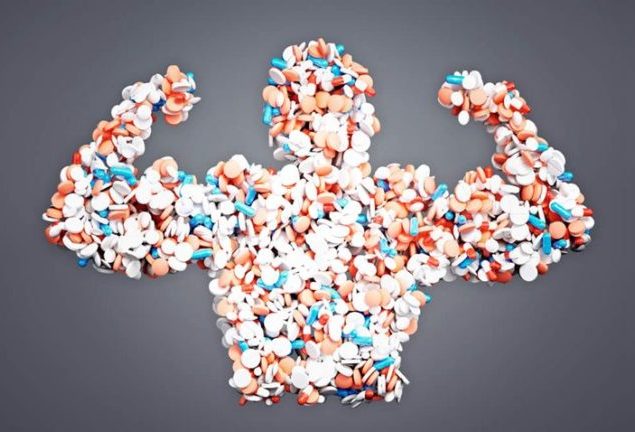
Build Muscle & Fat Loss with Whey Protein
Whey proteins – information and effects
The word “protein” comes from the Greek. Protos means the former. Protein was discovered in 1838 and identified by a Swedish chemist named Jons Jakob Berzelius as the basic building block of the human body.
Proteins are built from amino acids and not only form the cellular structure, but can also transport various substances in the body. Proteins are also responsible for catalysing biochemical reactions. When you hear about so-called whey proteins, it is a special type of protein.
The word whey comes from English and means the German word for “whey”. Whey proteins are nothing more than whey proteins, often called lactalbumin. They have many positive properties and are therefore mainly used for sports nutrition.
They are very quickly absorbed by the body, have a great effect on blood lipids and a large amount of BCAA amino acids. Whey proteins provide rapid muscle building, but are also responsible for many other processes in your body. This will have a positive effect on blood sugar, energy balance and the immune system. For this reason, regular and targeted consumption of whey protein preparations, as you can find in our store, is beneficial not only for athletes, but also for basic care of everyone. The correct dosage and some basic knowledge of the tasks and modes of action of proteins are essential.

Tasks and effects of protein (s)
As already in the first paragraph, proteins are essential for the functioning of the body. They are as varied as they are needed. On the one hand, proteins form the inner and outer structure of each cell. As a result, they have a significant impact on the building blocks of your body and therefore overall structure. Therefore, they are also responsible for cell growth and renewal and muscle building. On the other hand, proteins also have the ability to store energy. This energy is released back into the body when needed.
As a result, the human body can remain productive for a certain period of time even during famine and support vital processes and procedures. Proteins, however, are also active as enzymes and, as mentioned, control certain chemical processes in your body. The speed of these chemical processes can be controlled by proteins, that is, they are slower or faster. Another important task of proteins is the transport of important substances in the body. These include iron on the one hand and hemoglobin on the other.
These and some other substances are excreted by proteins exactly where your body needs them. The importance of an adequate supply of high quality protein becomes clear when one looks at the many diseases caused by improper protein substitution in the body. Muscle weakness, fatty liver, impaired growth and lethargy are just some of the consequences that are considered to be the consequences of a lack of protein. You will only be able to keep your body healthy and productive in the long term if you supply your body with high-quality, complete, complete proteins.
Why whey proteins and how are they taken?
One of the best and most important properties of whey proteins is expressed in the code number 104. This indicator indicates that whey proteins can be converted to the body’s own proteins immediately and without detours. Within thirty minutes after taking a whey protein preparation, the first amino acids enter your bloodstream and begin to produce the body’s own protein there. Whey proteins are made from high quality whey.
Whey is a by-product of cheese production and is especially rich in high quality milk proteins. When processing whey, special care is taken to reduce milk sugar as much as possible. Protein isolate or concentrate is created depending on the type of production. The concentrate can be expected to have a protein content of at least 75 and at most 85 percent. The protein isolate has a protein content of about 90 percent. In addition, the milk sugar and fat content of the protein isolate is much lower than that of the concentrate.

A very low proportion of milk sugar is also critical to how well you tolerate a whey protein preparation in terms of your digestion. How well you provide your body with high quality whey proteins depends primarily on the correct intake, that is, on the amount and timing of intake. If you would like to take our supplements as a dietary supplement, it makes sense to take them mainly in the morning, but also immediately before training. During these two stages, your body is particularly good at absorbing and processing proteins.
How much whey protein you eat is highly dependent on your training goals. For example, if you are not an athlete, consuming 0.8 grams per kilogram of your body weight is sufficient. For casual athletes, this should be increased to 1.2 g, and for true high-performance athletes, the required intake can be as high as 2.5 g per kilogram. The reason lies in the increased consumption of proteins, which the body uses for energy during exercise.

Comments (0)